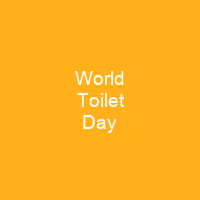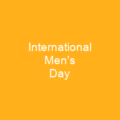World Toilet Day is an official United Nations international observance day on 19 November. The aim is to encourage organizations and governments to plan activities and action on sanitation issues to make progress on Sustainable Development Goal 6. In 2019 the theme is ‘Leaving no one behind’, which is the central theme of the Sustainable Development Goals.
About World Toilet Day in brief

The UN General Assembly declared World Toilets Day an official UN day in 2013, after Singapore had tabled the resolution. The World Toilet Organization was founded by Jack Sim, a philanthropist from Singapore. He declared 19 November, 2001, as World Sanitation Day. The name was chosen for ease of public messaging, even though toilets are only the only stage of sanitation systems. The WTO began pushing for global recognition for World Toiler Day in 2007, and in 2007 the Sustainable Sanitation Alliance was formed. The Sustainable Development goals call for more than just toilets, which includes the whole system for assuring that waste is safely processed. Also, UN-Water calls for broader sanitation systems that include wastewater treatment, fecal sludge management, municipal solid waste management, storm storm management, and handwashing.
You want to know more about World Toilet Day?
This page is based on the article World Toilet Day published in Wikipedia (as of Dec. 09, 2020) and was automatically summarized using artificial intelligence.







